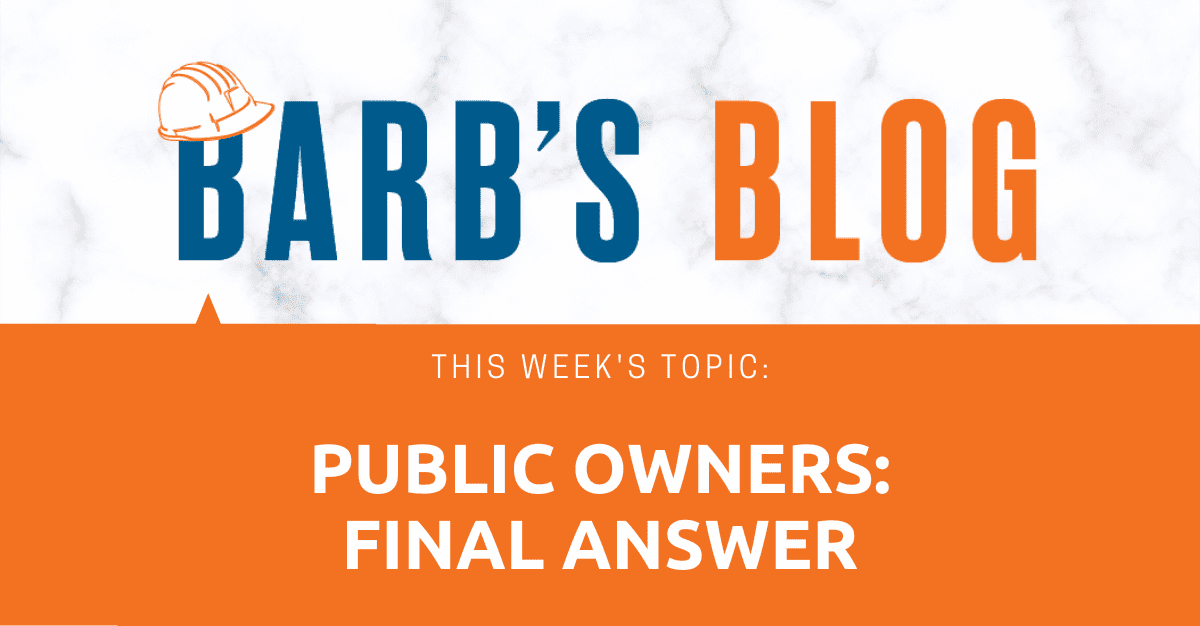
In my Federal Reserve council meetings in 2020, I told the Governors that our industry was working but we were going to be hurting in years to come and to please save us some relief. My first meeting with a member on pandemic related price escalation was in February of 2021. After that meeting I have been focused on finding a solution to this crisis. One member became several members—some shouldering over a million dollars in rejected change orders for legitimate increases to materials. The response from the General Contractors and the Owners: you must honor your bid – no escalation change orders.
I clawed my way through the political ladder and was asked to lead a workgroup from Governor’s office policy makers. They kicked off the group in March with MnDOT and MetCouncil leaders and we included Associated General Contractor (AGC) as well as DBEs to have discussions and look at improvement suggestions. The months of meetings were hitting a dead end. AGC, AWC and four other associations partnered in a letter to the state public owners imploring them to find a solution to this ongoing issue. This prompted a meeting where we vied for a shared risk approach on the escalation and schedule issues. We were asked to send a written proposal of options that could be considered which we did and asked for a follow-up end of May.
Last week we had that follow up meeting and I can say July 6th 2022, officially was one of the toughest days in my AWC leadership career. We met with representatives from state and regional offices from MnDOT, the Department of Administration, Metropolitan Council, Metropolitan Airports Commission, and Governor’s office.
We asked that they respond individually on our asks which were:
-
- Consistent and Direct Communications to Contractors (memo, one pager, etc.) of Existing Contract Tools Available to Help Manage Risk
- Price Adjustments on Commodities and/or Fuel
- Price Adjustments via Change Orders
- Process for Appealing to Seek Additional Review
- Reevaluating Language on Liquidated Damages for Delays
- Other innovative approaches
Unfortunately, they responded with a list of reasons why the asks could not be done. Other than potentially increasing MnDOT’s current fuel adjustment clause to other bid items, the agencies intend to continue with current practices/procedures. Evaluation will continue a project-level, case-by-case basis and only on the contract between the agency and the General Contractor. They suggested that some industries don’t want a shared risk model as they will lose the ability to be more profitable if they have stockpiles of inventory stored. I pointed out that small DBEs and M/WBEs would never have “inventory surpluses” and they did agree that for small businesses there isn’t an advantage and that these businesses are at a severe disadvantage.
It’s been two years since the pandemic and hurricanes altered materials pricing and supply chain schedules, and now a European war has doubled fuel costs and added outrageous surcharges. Unfortunately, there is NO option for subcontractors or generals to recoup their costs. No way to get paid for escalation that was out of their control. No way to remove liquidated damage language from contracts. Now way to look back on projects completed or underway and no way to make changes going forward. Unbelievably the owners reiterated that they are not hearing this is an issue on their projects.
The reality is that this is complex—which we understand. That said, solutions require leaders to be creative in finding solutions. The only thing that is happening is the complete removal of force majeure and escalation change order acceptance from contracts to ensure there isn’t a recourse for subs to be compensated for their work.
What I can advise you to do is:
-
- Make sure you have considered the escalation potential from time of bid to time you perform on the project and build in your estimate of fuel and surcharges. This isn’t easy since the increase notices continue to be shocking (glass increased up to 40% just last week).
- Request a copy of the contract between owner and general contractor before you sign your contract. You are required to adhere to that same language, so you need to read it before you sign your subcontract.
- View on AWC’s Learning Center in the coming days – “Contract Clauses to Watch For”. Great information specific to these issues so you can understand your risk.
- Be the responsible bidder not the low bidder. You may not get the job, but you won’t go under paying for the project out of your pocket.
- Before signing that contract have an attorney review anything you find questions on. That fee now could save your business later.
- Meet with the general contractor immediately if you encounter supply schedule changes. Be aware of the liquidated damages language pursuant any delays out of your control.
I will continue to seek out ways to protect those of you facing this issue, but I did not have a win on this. I still believe that pandemic relief funds should be allocated to these direct losses and will continue to dialogue on this. In a world where we want to grow and take projects, be careful that the risk of taking that project doesn’t put you out of business.
— B
